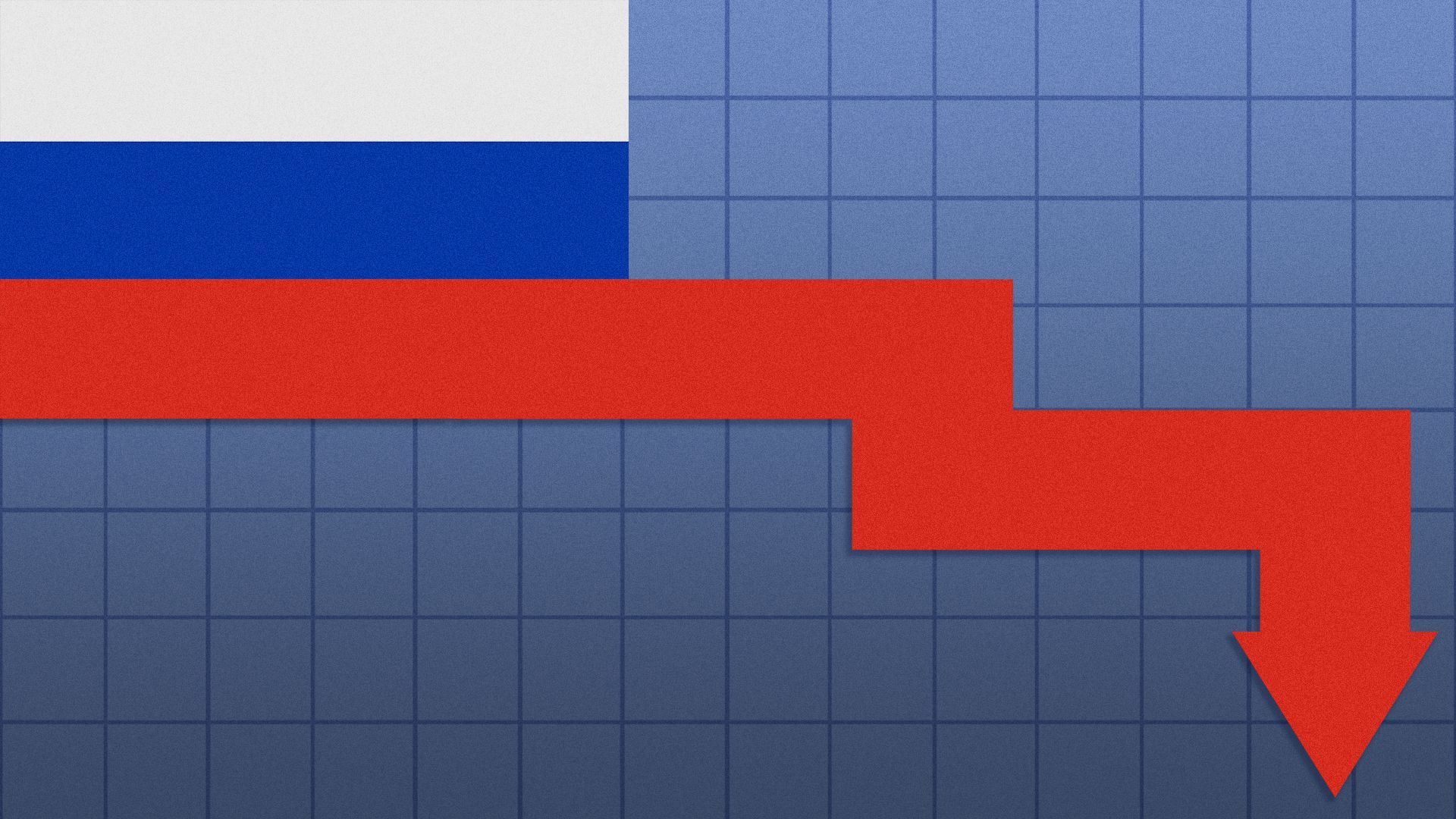Fund managers trim exposure to Russia
Add Axios as your preferred source to
see more of our stories on Google.

Fund and money managers with stock and bond picks tied to Russia have been adjusting their positions to limit exposure.
Why it matters: Financial sanctions have had a direct impact on Russia — and Russian markets — but they’ve so far had a less direct impact on the vast majority of investors.
Catch up quick: A few Russia-focused exchange-traded funds like the Van Eck Russia ETF and iShares MSCI Russia ETF have seen steep selloffs of about 20% and 33% today, respectively.
- BlackRock, which runs the iShares MSCI Russia ETF, today also suspended new investment in the fund.
- Another U.S.-based fund, GQG Partners Emerging Markets Equity, just trimmed its assets in Russia down to about just 4% last week from 16% as of December, according to Morningstar.
Yes, but: If you’re broadly diversified, you don’t have a lot of Russia exposure.
By the numbers: The average international equity fund — an investment portfolio that invests in international stocks — had about 99% of its holdings in places other than Russia, according to Daniel Culloton, editorial director of manager research at Morningstar.
- Even a specialized fund that looks to focus on emerging markets, like the MSCI Emerging Markets Index, has about 97% of its assets with other parts of the world.
The big picture: There are always knock-on effects even if positions in Russia are 1%-3%, says Culloton.
- Emerging markets, including Russia, tend to trade together and when there is turmoil, investors pull back and flee to safer bets, which impact other parts of markets.
Be smart: The people in charge of picking the positions for these portfolios may not choose to act on what they see right now — or may not be able to.
- They may not be able to find a market willing to trade Russian securities, for example, especially when the Moscow Stock Exchange is closed or the New York Stock Exchange and Nasdaq are prohibiting trades of Russia-based company stocks.
What they’re saying: Take a look at your investment accounts and see what index funds you’re in or what your active managers have been doing, says Culloton.
- “The most important thing to remember though, is that it's generally a bad idea to make rash decisions in the middle of an emotional crisis that's very fraught with cognitive dissonance.”
The bottom line: “It’s a very confusing, fluid, rapidly changing environment.”
